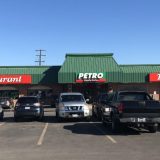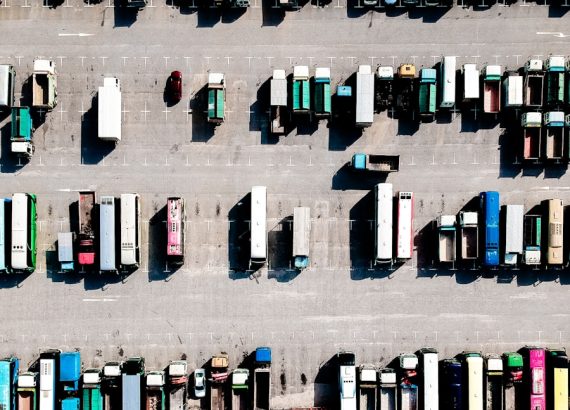How to stop paid truck parking/Wal-mart should charge cars a parking surcharge,

The environmental impact of car parking at Wal-Mart is a significant concern due to the emissions and pollution associated with vehicle use. The large number of cars visiting Wal-Mart stores daily contributes to air and noise pollution, as well as greenhouse gas emissions. Moreover, the construction and maintenance of expansive parking lots can lead to land degradation and disruption of natural habitats.
These environmental consequences highlight the need for sustainable solutions to mitigate the impact of car parking at Wal-Mart. Furthermore, the reliance on car transportation to access Wal-Mart stores contributes to increased fuel consumption and carbon emissions, exacerbating the effects of climate change. The environmental impact is not limited to the immediate vicinity of the stores but extends to the broader community and ecosystem.
As such, it is imperative for Wal-Mart to address the environmental implications of car parking and explore alternative approaches to reduce its ecological footprint.
Traffic Congestion and Parking Availability at Wal-Mart
The issue of traffic congestion and parking availability at Wal-Mart is a common concern for both customers and local communities. The influx of vehicles during peak shopping hours often leads to traffic gridlock in the vicinity of Wal-Mart stores, causing inconvenience for shoppers and nearby residents alike. Additionally, the limited parking spaces available often result in frustration and inefficiency as customers circle the lots in search of a spot, further exacerbating congestion and emissions.
The lack of adequate parking availability not only impacts the shopping experience but also poses safety risks and hampers accessibility for individuals with mobility challenges. Addressing these challenges requires a comprehensive approach that considers the broader implications of traffic congestion and parking shortages on the surrounding community. By implementing effective strategies to manage traffic flow and enhance parking availability, Wal-Mart can improve the overall experience for customers while mitigating the negative impacts on local infrastructure and environment.
Incentivizing Sustainable Transportation to Wal-Mart
Incentivizing sustainable transportation to Wal-Mart presents an opportunity to reduce the environmental impact of car parking while promoting alternative modes of travel. By encouraging customers and employees to utilize public transportation, carpooling, cycling, or walking, Wal-Mart can significantly decrease the reliance on individual vehicle use. Offering incentives such as discounted or free parking for carpoolers, designated bicycle parking areas, or shuttle services from public transit hubs can effectively promote sustainable transportation options.
Potential Revenue from Parking Surcharge for Wal-Mart
Location Number of Parking Spaces Estimated Surcharge Potential Revenue
Wal-Mart Store 1 500 0.50 250
Wal-Mart Store 2 700 0.75 525
Wal-Mart Store 3 600 0.60 360
The implementation of a parking surcharge at Wal-Mart has the potential to generate significant revenue while simultaneously addressing environmental concerns and traffic congestion. By charging a nominal fee for parking, Wal-Mart can not only offset the costs associated with maintaining parking facilities but also incentivize alternative transportation methods. The revenue generated from the parking surcharge can be allocated towards sustainable initiatives such as improving public transit access, enhancing pedestrian infrastructure, or investing in renewable energy projects.
Furthermore, the introduction of a parking surcharge aligns with the concept of value-based pricing, wherein customers are encouraged to consider the true cost of their transportation choices. This approach not only provides a source of additional income for Wal-Mart but also promotes responsible consumer behavior and supports the implementation of sustainable practices within the retail industry.
Community Response to Wal-Mart’s Parking Surcharge Proposal
The proposal for a parking surcharge at Wal-Mart has elicited varied responses from the community, reflecting a range of perspectives on the potential benefits and drawbacks of such a measure. While some individuals express concerns about the financial burden on customers and potential impact on store visitation, others view it as a proactive step towards addressing environmental issues and promoting sustainable transportation. Community engagement and dialogue are essential in shaping the implementation of parking policies at Wal-Mart, as it allows for the consideration of diverse viewpoints and concerns.
By actively involving stakeholders in the decision-making process, Wal-Mart can foster transparency and trust while gaining valuable insights into the preferences and priorities of its customer base.
Alternatives to Car Parking at Wal-Mart
Exploring alternatives to traditional car parking at Wal-Mart presents an opportunity to diversify transportation options and reduce reliance on individual vehicles. One approach involves enhancing public transit connectivity by partnering with local transit authorities to improve bus routes, schedules, and accessibility to Wal-Mart stores. Additionally, investing in infrastructure for cycling and walking paths can encourage active transportation and provide a viable alternative to car travel.
Furthermore, implementing ride-sharing programs, designated pickup/drop-off zones for ride-hailing services, and promoting carpooling initiatives can contribute to reducing the overall number of vehicles accessing Wal-Mart locations. By embracing a multi-modal approach to transportation, Wal-Mart can create a more inclusive and sustainable mobility ecosystem that caters to diverse customer needs while minimizing environmental impact.
The Future of Parking Policies at Wal-Mart
The future of parking policies at Wal-Mart is poised to evolve in response to changing consumer preferences, technological advancements, and sustainability imperatives. As societal attitudes towards transportation continue to shift towards eco-friendly alternatives, there is a growing impetus for retailers like Wal-Mart to reevaluate their approach to parking management. Embracing innovative solutions such as smart parking technologies, dynamic pricing models, and integrated mobility platforms can enhance the efficiency and sustainability of parking facilities while improving the overall customer experience.
Moreover, ongoing collaboration with local governments, environmental organizations, and urban planners can inform the development of progressive parking policies that align with broader sustainability goals. By proactively adapting to emerging trends in transportation and urban planning, Wal-Mart can position itself as a leader in promoting responsible mobility practices and contributing to a more sustainable future for retail operations.
Truck stops like ta-petro, pilot and others charge drivers as much as 25.00 per night which should be charged back to the customer, without trucks people would have nothing, so if the truck has to pay for parking, the consumer should pay as well. There should also be desiginated truck parking in every walmart accross america, if it was not for the micro mangaged walmart drivers there would be no walmart.









